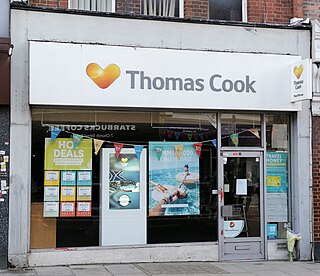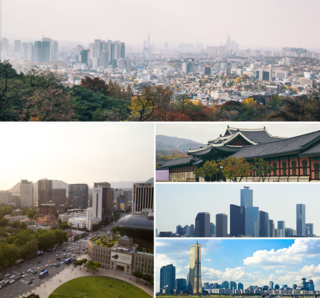
The economy of Mongolia has traditionally been based on agriculture and livestock. Mongolia also has extensive mineral deposits: copper, coal, molybdenum, tin, tungsten, and gold account for a large part of industrial production. Soviet assistance, at its height one-third of Gross domestic product (GDP), disappeared almost overnight in 1990–91, at the time of the Collapse of the Soviet Union. Mongolia was driven into deep recession. Reform has been held back by the ex-communist MPRP opposition and by the political instability brought about through four successive governments under the DUC. Economic growth picked up in 1997–99 after stalling in 1996 due to a series of natural disasters and increases in world prices of copper and cashmere. Public revenues and exports collapsed in 1998 and 1999 due to the repercussions of the Asian financial crisis. In August and September 1999, the economy suffered from a temporary Russian ban on exports of oil and oil products. Mongolia joined the World Trade Organization (WTO) in 1997. The international donor community pledged over $300 million per year at the last Consultative Group Meeting, held in Ulaanbaatar in June 1999. Recently, the Mongolian economy has grown at a fast pace due to an increase in mining and Mongolia attained a GDP growth rate of 11.7% in 2013. However, because much of this growth is export-based, Mongolia is suffering from the global slowdown in mining caused by decreased growth in China.

The economy of North Korea is a centrally planned system, where the role of market allocation schemes is limited, though increasing. As of 2015 North Korea continues its basic adherence to a centralized command economy. There has been some economic liberalization, particularly after Kim Jong-un assumed the leadership in 2012, but reports conflict over particular legislation and enactment. According to economic freedom ranking by Heritage Foundation, North Korea's economic freedom score is 5.9, making it the least free of the 180 economies measured in the 2019 Index.

South Korea is a country in East Asia, constituting the southern part of the Korean Peninsula and sharing a land border with North Korea. The name Korea is derived from Goguryeo which was one of the great powers in East Asia during its time, ruling most of the Korean Peninsula, Manchuria, parts of the Russian Far East and Inner Mongolia under Gwanggaeto the Great. Its capital, Seoul, is a major global city and half of South Korea's over 51 million people live in the Seoul Capital Area, the fourth largest metropolitan economy in the world.

SAP SE is a European multinational software corporation that makes enterprise software to manage business operations and customer relations. The company is especially known for its ERP software. SAP is headquartered in Walldorf, Baden-Württemberg, Germany with regional offices in 180 countries. The company has over 425,000 customers in over 180 countries and is a component of the Euro Stoxx 50 stock market index.

Daewoo or the Daewoo Group was a major South Korean chaebol and car manufacturer.
This is a list of public holidays in North Korea. See also the Korean calendar for a list of traditional holidays. As of 2017, the North Korean calendar has 71 official public holidays, including Sundays. In the past, North Koreans relied on rations provided by the state on public holidays for feasts. Recently, with marketization people are able to save up money and buy the goods they need.

A travel agency is a private retailer or public service that provides travel and tourism related services to the general public on behalf of suppliers. Travel agencies can provide outdoor recreation activities, airlines, car rentals, cruise lines, hotels, railways, travel insurance, package tours, insurance, guide books, public transport timetables, car rentals, and bureau de change services. Travel agencies can also serve as general sales agents for airlines that do not have offices in a specific region. A travel agency's main function is to act as an agent, selling travel products and services on behalf of a supplier. They do not keep inventory in hand unless they have pre-booked hotel rooms or cabins on a cruise ship for a group travel event such as a wedding, honeymoon, or a group event.
K-pop is a genre of popular music originating in South Korea. While the modern form of K-pop can be traced back to the early 90s, the term itself has been popularized since the 2000s, replacing the term Gayo (가요), which also refers to domestic pop music in South Korea. Although it generally indicates "popular music" within South Korea, the term is often used in a narrower sense to describe a modern form of South Korean pop that is influenced by styles and genres from around the world, such as experimental, rock, jazz, gospel, hip hop, R&B, reggae, electronic dance, folk, country, and classical on top of its traditional Korean music roots. The more modern form of the genre emerged with the formation of one of the earliest K-pop groups, Seo Taiji and Boys, in 1992. Their experimentation with different styles and genres of music and integration of foreign musical elements helped reshape and modernize South Korea's contemporary music scene.

Gunpo, formerly romanized as Kunp'o, is a small city in South Korea's Gyeonggi Province, located south of Seoul in the Seoul National Capital Area. It borders Anyang to the north, Uiwang to the east, and Ansan to the south and west, and is connected to its neighbors and to Seoul by lines 1 and 4 of the Seoul Metropolitan Subway. Gunpo is also home to three stops on the Gyeongbu Line, a national railway that links it to the rest of the country. Although 73.2% of the city is greenspace, owing largely to Surisan and various smaller mountains, Gunpo is home to over 286,000 residents in several urban areas. The city's downtown core is Sanbon New Town, a commercial hub which centers on a pedestrian "street of culture" that Gunpo has designated as one of its eight scenic locations.

Kim Jong-un is a North Korean politician who has been the supreme leader of North Korea since 2011 and chairman of the Workers' Party of Korea since 2012. He is the second child of Kim Jong-il (1941–2011), who was North Korea's second leader from 1994 to 2011, and Ko Yong-hui (1952–2004). He is the grandson of Kim Il-sung, who was the founder and led North Korea from its establishment in 1948 until his death in 1994.
Samsung Fire & Marine Insurance is an insurance company based in Seoul, South Korea. Incorporated on January 26, 1952, under the name of "Korea Anbo Fire Marine Reinsurance Co.", the company changed its name to Samsung Fire & Marine Insurance Co., Ltd., in December 1993, after its takeover by Samsung Group dated back to 1958. Samsung Fire & Marine Insurance, SFMI in short, is operating property and casualty insurance business and third-party insurance business defined by the Korea Insurance Business Act, while engaging in providing financial services and instruments approved by relevant laws and regulations including the Korea Financial Investment Services and Capital Markets Act. Its business portfolio consists of automobile insurance, long-term insurance, general insurance, enterprise risk management, annuities, etc. As of the end of 2015, Samsung Fire & Marine Insurance has seven overseas subsidiaries in Indonesia, Vietnam, China, Brazil, Europe, US, and Singapore.

Grand Mart International Food is a Korean supermarket chain primarily located in the Washington, D.C., metropolitan area, with locations in North Carolina and Georgia. It is owned by Annandale, Virginia-based Man Min Corporation, a family company. It was founded in 2002 by David Min Sik Kang, a Korean-American entrepreneur who originally owned small Korean grocery stores in Washington, D.C.
The Multilateral Investment Guarantee Agency (MIGA) is an international financial institution which offers political risk insurance and credit enhancement guarantees. These guarantees help investors protect foreign direct investments against political and non-commercial risks in developing countries. MIGA is a member of the World Bank Group and is headquartered in Washington, D.C. in the United States.

The Ministry of Micro, Small and Medium Enterprises, a branch of the Government of India, is the apex body for the formulation and administration of rules, regulations and laws relating to micro, small and medium enterprises in India. The Minister of Micro, Small and Medium Enterprises is Nitin Gadkari and the Minister of State is Pratap Chandra Sarangi since 31 May 2019.

Seoul, officially the Seoul Special City, is the capital and largest metropolis of South Korea. With surrounding Incheon metropolis and Gyeonggi province, Seoul forms the heart of the Seoul Capital Area. Ranked as an alpha world city, Seoul was the world's 4th largest metropolitan economy with a GDP of US$635 billion in 2014 after Tokyo, New York City and Los Angeles. International visitors generally reach Seoul via AREX from the Incheon International Airport, notable for having been rated the best airport for nine consecutive years (2005–2013) by the Airports Council International. In 2015, it was rated Asia's most livable city with the second highest quality of life globally by Arcadis, with the GDP per capita (PPP) in Seoul being around $40,000. In 2017, the cost of living in Seoul was ranked 6th globally. In 2018, Seoul's real estate market was ranked 5th in the world for the price of apartments in the downtown center.
Sinjeong Market is a traditional street market in Nam-gu, Ulsan, South Korea. Established in 1970, today the market has more than 700 shops that sell fruits, vegetables, meat, fish, breads, clothing, and Korean traditional medicinal items. The market is also home to many small restaurants and street food stalls.

Brunei–South Korea relations refers to bilateral foreign relations between Brunei and South Korea. Brunei has an embassy in Seoul, and South Korea has an embassy in Bandar Seri Begawan.
Korea Internet Neutral Exchange, the only carrier-neutral Internet exchange (IX) in South Korea, is a B2B company that specializes in Internet infrastructure. KINX provides Internet data center (IDC), Content Delivery Network (CDN), and Cloud computing services to customers. The headquarters is in Seoul, South Korea. As of June 2019, KINX has 116 employees.
The Small and Medium Business Administration was one of a small and medium industry organizations in South Korea and is run under the Ministry of Trade, Industry and Energy. The headquarters are in Seo District, Daejeon.











